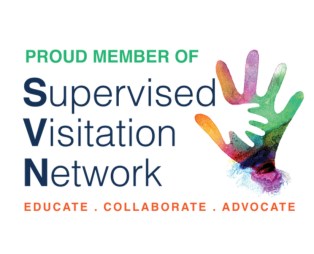Supervised Visitation & Exchange
Whether parents are living together or apart, they have a shared responsibility for their children. Most often, children benefit from regular contact with both parents, regardless of the parents’ relationship. CTXST provides supervision for the benefit of children who may not have that contact without the support and intervention of a neutral person or persons. Start the application process today.
The goal is to help families move into less supervised visitation opportunities and into unsupervised parent/child activities. Supervised Visitations are scheduled at times convenient to parent, child, and child’s guardian and upon the availability of visitation supervisors. Visits are held in our office. We have a variety of activities, toys, and books. Highly trained-degreed staff members supervise the visits and provide written reports on the parent/child interactions.
Supervised Visitation:
- Allows the parent/child relationship to continue to flourish
- Reduces friction between parents
- Prevents further acts of abuse and/or violence toward the child
- Maintains regular visitation schedules

Supervised Visitation Program:
Supervised visitation is offered for parents/others when it is determined that visitation is necessary and in the child’s best interest but should be in a controlled environment. CTXST provides these services by referral when ordered by the courts, Child Protective Services, or other entities with authority. These visits take place at our office.

Facilitated Exchange Program:
CTXST provides an exchange service for parents who need to exchange their children for weekend/other visitation periods. This program ensures that the child is not caught up in the emotional tug-of-war that often occurs and provides assurance that the custodial parent is not withholding visitation. Exchanges may occur at our office; however, exchanges may take place outside of our office on a case-by-case basis.

Observational Visitation Program:
Observational Visitation is different from Supervised Visitation in that there is less interaction from the supervisor during the visit. In addition, Observational Visitation is usually derived from a mutually agreed-upon understanding and not a court order. These visits take place at our office.
Commonly Asked Questions:
Supervised Visitation refers to contact between a non-custodial parent and one or more children in the presence of a third person responsible for observing and seeking to ensure the safety of those involved. “Observational Visitation,” “Supervised Child Access,” and “Supervised Child Contact” are other terms with the same meaning.
Supervised Exchanges, sometimes referred to as “Monitored Exchanges” or “Supervised/Monitored Transfers,” supervise the child’s transfer from one parent to another. Supervision is limited to the exchange or transfers only, with the remainder of the parent/child contact remaining unsupervised. Most frequently, precautions are taken to assure that the two parents or other individuals exchanging the child do not contact one another.
Both Supervised Visits and Supervised Exchanges are designed to assure that a child can have safe contact with an absent parent without being put in the middle of the parents’ conflicts or other problems. The child’s need is paramount in making any decisions regarding the need for such supervision. However, there are also some significant benefits to parents. We hope that no one will look upon supervised visitation or exchange as a negative or stigmatized service. Instead, it is a tool that can help families as they go through difficult and/or transitional times. Some of the benefits for the various family members are as follows:
FOR THE CHILDREN:
- It allows the children to maintain a relationship with both of their parents, which is generally an essential factor in the positive adjustment to family dissolution.
- It allows them to anticipate the visits without the stress of worrying about what will happen and enjoy them in a safe, comfortable environment without having to be put in the middle of their parents’ conflict and/or other problems.
FOR THE CUSTODIAL PARENTS:
- You do not have to communicate or contact a person with whom you conflict or by whom you might be frightened or intimidated. A neutral party (the visit supervisor) can make the arrangements, and there does not have to be contacted before, during, or after the visits.
- You can relax and feel comfortable allowing your child to have contact with the other parent-and can get some valuable time to yourself.
FOR THE NON-CUSTODIAL PARENTS:
- You can be sure that your contact with your children does not have to be interrupted regardless of any personal or interpersonal problems you may be having.
- Suppose allegations have been made against you, which is often the case when supervision is ordered. In that case, you can visit without fear of any new accusations because someone present can verify what happened during your time together. When using a professional service, you can also be assured that the supervisors are neutral and objective
When parents separate, the children most often will have primary residence with one parent and regularly spend time with the other. Visitation, contact, and access are words used to refer to post-separation contact with the non-residential parent or another significant person, such as a grandparent, sibling, or another relative. When the courts feel it is appropriate, they may order that such visitation take place in the presence of a third party.
Supervised exchanges may be court-ordered or arranged by the parent and are generally appropriate when there is no question about the child’s safety but when one or both parents do not feel safe or comfortable interacting directly with the other. It is always better for the child not to be put into a situation where they are exposed to the anger and conflict of the parents.
Children should not have to lose contact with a mother or father just because the parents have dissolved their relationship or because the parents are abusive or, for any other reason, unable to care for their child. Research indicates that when there is ongoing contact between a child and his/her separated parents, both the child and the parent benefit. The children adjust better to the disruption of their family. The parent is more likely to maintain a connection to the child and therefore provide ongoing physical and emotional support. A parent who has contact is more likely to overcome barriers to their being a responsible parent. Once contact is lost, the child experiences abandonment and the parent loses much of their motivation.
Often there is nothing to prohibit you from using a “non-professional” relative, friend, or acquaintance. Many court orders will allow that as an option providing both parents can agree on who to use. Unfortunately, that often does not work out for the following reasons.
First and foremost is the difficulty in finding someone on whom you both agree. If you have sufficient conflict that supervision was deemed necessary, then chances are very slim you will be able to find an individual that both of you will trust and feel comfortable with using. Secondly, it puts a real strain on friendships. Many well-meaning friends and relatives will agree to provide the service but will quickly tire of the regular commitment and/or being in the middle of your conflicts. It is difficult for friends and relatives to restrain from taking sides. Once neutrality is lost, then the credibility of the “supervisor” will come into question, and much of the feeling of security and safety will be gone. And, finally, it may detract from the quality of the parent/child time together. It is often tempting to spend time interacting with the acquaintance rather than focusing on the child. Children may then resent the visits because they feel that they are secondary and not primary in the interaction.
How to Apply:
Download Forms
Check out our step-by-step guide on how to apply for supervised visitation and exchange programs. Get a head start on the application process by downloading all forms today.
Schedule & Fees
We offer morning and evening Supervised Visitation options, as well as weekend options for both Supervised Visitation and Exchange. Please contact us to learn more about fees.
Questions? Contact Us!
We understand this can be a challenging and confusing time. We are here to help answer your questions regarding our programs, paperwork, and pricing.


